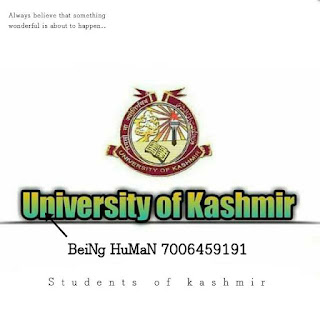Bullet points for preparing study material for BA 6th Semester 2018
Political Science
Prepared by Prof. Khurshid, Prof. Adil, & Prof. Imtiyaz
Political awakening in Kashmir and 1931 uprising
• In 1865, the shawl workers strike marked the beginning of workers uprising in Kashmir.
• Reading Room Party, a Muslim educated group initiative of 1930 laid the foundation of modern political uprising in Kashmir.
• Sheikh Abdullah believed that Reading Room was only a pretext while the main aim and agenda was to launch a political movement against autocratic rule.
• Window was opened to the world so that it could see the worse conditions of people living in Kashmir.
• In the month of July, 1931 a good number of public meetings were held and were addressed by Sheikh Mohammad Abdullah, Ghulam Nabi Gilkar and Moulvi Abdul Rahim and the meetings were followed by slogans like ‘sur faroshi ki tamana ab hamarae dil mai’
• Abdul Qadeer became a revolutionary figure in uprising. His arrest and demanded shifting of venue of trail caused serious anger among youth who assembled outside the central jail and shouted slogans like Allahu Akber and consequently it turned into violent event in which seventeen Muslims were killed while forty got injured, five of whom died later on 13 July, 1931.
• This led the beginning of mass uprising.
• Mr. Wakefield was the Prime Minister of Kashmir.
• The martyrs were kept in the Jamia Masjid for the whole night attended by Sheikh Mohammad Abdullah.
Formation and Ideology of Muslim Conference
• According to Maulana Mohammad Sayed Masoodi, the decision to form a party and name it Muskim Conference was taken in the Central Jail, Srinagar.
• The inaugural session was held from 14th to 16th of October, 1932 in the historic Pather Masjid, Srinagr under the presiden-ship of Sheikh Mohammad Abdullah.
• The Muslim Conference drafted its constitution and also adopted a party flag which consisted of green cloth crescent and star. The session was attended by three lakh men, women and children.
• Right from its inception the programme of the Muslim Conference was secular and progressive. True, the leaders of Muslim Conference came forward in the Muslim name but their programme and manifesto was as broad as that of any progressive political Party of India. They fought against exploitation, regardless of the religion of the exploiter.



Please upload MCQs for poltical science course (democracy and governance) 6th sem
I need the paper of Arabic literature and practical and commercial Arabic 6th sem